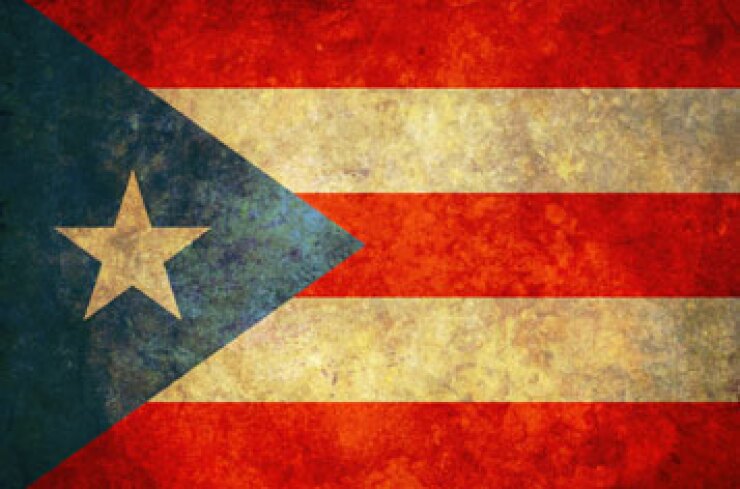The U.S. Court of Appeals for the First Circuit rejected three out of four legal challenges to the Puerto Rico Sales Tax Finance Corp. (COFINA) bond restructuring, which addressed the biggest stack of Puerto Rico bonds outstanding.
The appeals court judges found that the appellants had failed to seek stays or appeals of the approved bond restructuring — about $17.6 billion of debt — in a timely fashion and that the plan had advanced well beyond the point where it could be practically undone. On these bases the court upheld the restructuring plan on the basis of the legal doctrine of equitable mootness, which seeks to avoid undoing complex bankruptcy reorganizations.

The three cases decided included two launched by holders of subordinate COFINA bonds, the Elliot and Peter Hein cases, and another spearheaded by a member of the Puerto Rico House of Representatives, the Pinto Lugo case.
The appeals court panel released a single decision for three of the cases late on Monday. It hasn’t yet released a decision on Coop de Ahorro y Cred. de Rin, et al. v. Financial Oversight and Management Board for Puerto Rico.
Title III bankruptcy Judge Laura Taylor Swain approved the restructuring of what was then $17.6 billion in COFINA bonds on Feb. 5, 2019. The deal went into effect Feb. 12, 2019. In it the new COFINA entity was given 53.65% of the revenue granted to the original entity. Claims for the senior and subordinate bonds were reduced.
The Puerto Rico Oversight Board said Tuesday, “The Oversight Board welcomes the decision by U.S. Court of Appeals for the First Circuit eliminating attacks on the COFINA Plan of Adjustment and dismiss[ing] appeals of a very limited number of creditors… . The First Circuit ruled that vacating confirmation of the COFINA Plan of Adjustment ‘would trigger a hopeless effort to unscramble the eggs.’”
Appellate Judge William Kayatta Jr. wrote the decision for a panel that included Chief Appellate Judge Jeffrey Howard. While Appellate Judge Juan Torruella heard oral arguments in the cases in August 2020, he has since died, and court procedures allowed the remaining two judges to decide the case if they agreed.
“No party sought to stay the Title III court's order approving the plan [of adjustment], which has been fully implemented for nearly two years and given rise to transactions involving billions of dollars and likely tens of thousands of individuals,” Kayatta wrote.
The Elliot group argued the doctrine of equitable mootness was inapplicable to PROMESA. The First Circuit rejected this argument.
“Like the Pinto-Lugo objectors, the Elliot objectors failed to object to the waiver of the automatic stay of confirmation, did not seek any stay pending appeal, neither sought to expedite the appeal nor objected to requests for extension, and in fact sought to extend the briefing schedule themselves,” Kayatta wrote.
By allowing the appeal to extend further in time after the bonds had been restructured and started to trade, the Elliot objectors made undoing the restructuring more difficult.
The Pinto-Lugo objectors said the Puerto Rico House of Representatives didn’t follow proper procedures in considering the bill that would support the COFINA restructuring. “The Pinto-Lugo objectors’ complete and repeated lack of diligence in utilizing available mechanisms to stay implementation of the plan cuts sharply against them,” Kayatta wrote.
Hein made similar arguments as the Elliot objectors and was rejected on the same grounds. He also objected to a few other Swain actions but the First Circuit rejected these claims.
The Elliot group had asked the Appeals Court to order the Commonwealth of Puerto Rico to pay $316 million to make whole all those subordinate COFINA holders who had voted against the plan. Kayatta said he and Judge Howard didn’t find that equitable or practical.
The Appeals Court has not yet ruled on aa COFINA restructuring appeal launched by a group of Puerto Rico financial cooperatives (credit unions). The judges heard this case with the three other cases in August.
“If the First Circuit reverses the Cooperativa case, it could be significant,” said Puerto Rico Attorney John Mudd. “No idea when the decision will come out.”
The cooperatives held $43 million of original COFINA bonds. The group had filed adversary complaints in the bankruptcy in 2018, before the COFINA deal had been announced. In the complaints the cooperatives said the government had “forced or coerced” them into buying the COFINA bonds.
In their suit to the Appeals Court they said Swain failed to investigate their claims before approving the bond restructuring.





